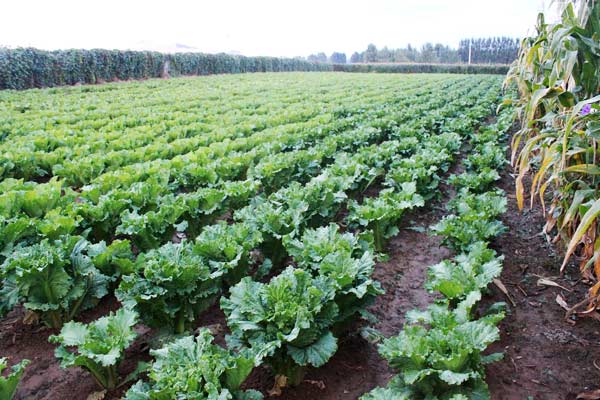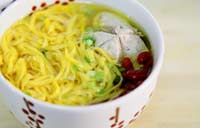One man's good earth
 |
|
Lin's Wubo Garden [Photo provided to China Daily] |
|
|
|
Video: How to make pumkin buns |
|
|
|
|
|
For more Good Food Diaries |
Lin also built an underground biogas converter right under the henhouse. Organic waste from the farm such as the waste from the fermentation bed goes straight to the converter and transforms into clean energy that the farm can use.
The use of antibiotics goes against Lin's ecological farming principles, so he grows some carefully chosen plants to give his chickens a healthy diet.
"Pumpkins, corn, carrots, cabbages, radishes and white gourds are what they eat every day," says Lin, who feels that chickens deserve to eat as healthily as humans.
His chicken also get the benefit of traditional Chinese medicine. Lin feeds them mint in summer when it gets too hot, and he uses indigo wood root and perilla leaves when they catch colds.
"Chickens from normal poultry farms get dozens of different vaccinations during their lifetime, and chemical residues are unavoidable. We only give our birds the two vaccinations that are legally required."
In 2008, Lin joined the first batch of farmers in Beijing to try out community-supported agriculture. "There were only three people in that group. Shi Yan, the main motivator, had just introduced the idea from abroad and was integrating it into a project she was doing for a university."
By then, Lin was already a founding member of the Beijing Country Fair, a weekly organic farmers' market where 20 or so farmers gather to sell their homegrown pesticide-free produce.
Lin says trust is the most important thing when farmers sell their products directly to their customers.
"I never present my products as organic because of the environmental limitations and certification difficulties. But I can promise them the food is safe and healthy because they can come to my farm to see for themselves."



















